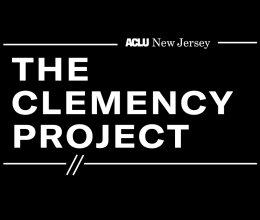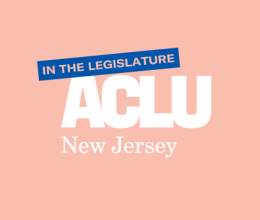
In a blistering friend-of-the-court brief filed today, the ACLU of New Jersey and partner organizations argued that New Jersey’s restrictions on predatory phone rates in prisons do not violate the rights of a private phone service provider. The provider claimed in a lawsuit that its loss of hypothetical profits as a result of a New Jersey law regulating prison-based phone rates amounted to a constitutional affront. The brief, which the ACLU-NJ and allied groups filed in support of the State’s position in Securus v. Christie, asked the Appellate Division of the Superior Court of New Jersey to dismiss the phone company’s case, which seeks to enjoin application of the rate control law and declare it unconstitutional.
The brief (PDF) was filed jointly with the Immigrant Rights Clinic of Washington Square Legal Services, Inc.; New Jersey Advocates for Immigrant Detainees; First Friends of New Jersey and New York; and the Prison Policy Initiative.
“The telephone is a lifeline for many in prison – a phone call shouldn’t be an opportunity to wring excessive profits from vulnerable people,” said Liza Weisberg, Catalyst Fellow at the ACLU-NJ. “It’s wrong to exploit a literal captive market, which is exactly why New Jersey put limits on phone rates in prisons. Securus, one of the largest prison phone vendors in the country, is attempting to cloak its greed in the costume of constitutional injury, and we hope the court recognizes the flaws in its arguments.”
In 2016, New Jersey took a decisive stance against the exploitative and predatory practices of prison and jail phone vendors when the Legislature passed the rate control law, capping calling rates at 11 cents per minute and prohibiting kickbacks. A few months later, Securus Technologies, Inc. – which controls about 20 percent of the prison phone market nationwide – sued the State, claiming that the new restrictions on phone rates amounted to an unconstitutional taking of private property. The ACLU-NJ and its allies supported the State’s successful motion to dismiss Securus’s suit. When Securus appealed the trial court’s dismissal, the ACLU-NJ and its partners stepped in again to file the Appellate Division brief.
“If someone in prison wants to wish their child a happy birthday, they have a choice: use the facility’s vendor or skip the call. A company like Securus understands that they aren’t just providing phone lines – they’re holding the keys to something priceless,” said Alexander Shalom, Senior Supervising Attorney at the ACLU-NJ. “It is undisputed that incarcerated people are more successful upon release when they keep in contact with loved ones while locked up. New Jersey is permitted to – and wise to – take action to prevent people from being priced out of maintaining critical contact.”
Exploitative phone rates in prisons and jails disproportionately prey on people of color. New Jersey has the highest Black-white incarceration disparity in the nation, with Black individuals incarcerated at 12 times the rate of whites.
A small number of companies dominate the 1.2 billion-per-year prison phone services industry, setting rates and fees far in excess of those charged by ordinary commercial providers. Because every contract gives phone vendors a monopoly in the contracting facility, they can charge exorbitant rates unless policies like New Jersey’s restrict them. Without regulation, facilities have little incentive to select the vendor that offers the most competitive rates over the vendor that promises them the largest commission, or kickback.
Read the ACLU-NJ’s brief. (PDF)






